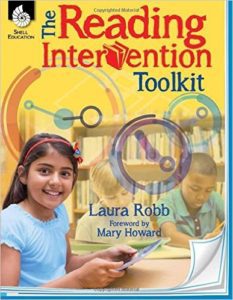My teaching career started in September 1963. My husband and I had moved from New York City to Winchester, Virginia after he accepted a job there. I had been working as a copywriter for an ad agency, but Winchester didn’t have an ad agency. So, at my husband’s urging, I took a job teaching sixth grade in an elementary school in Gainesboro, Virginia, replacing the principal’s wife who was on medical leave. That made me the only teacher not related to the principal.
Gainesboro was a poor, rural community. Some of the children’s parents worked in the principal’s peach factory while others worked on his land as tenant farmers. As such, most families were beholden to the principal for earning enough money to feed and clothe their children.
From the first day, the principal and I were at odds. Corporal punishment was thriving at the school; teachers were equipped with a whip or a paddle or both. When both first appeared on my desk, I promptly returned them to the principal’s office. That action started the yearlong battle between the principal and me. Every morning when I arrived at school, I’d find a whip and paddle on my desk, and I promptly returned them.
My twenty-eight students were shocked that I didn’t keep and use the whip or paddle. They peppered me with questions: Weren’t you ever whipped at home? At School? Why don’t you believe in whipping? They seemed fascinated by what they feared. If they heard a child in another class screaming while being whipped or paddled, they turned shades of gray, sat stiff as toy soldiers, and when the screams subsided sighed deeply. Yet, they wanted me to keep the whip and paddle in our classroom.
I explained that I didn’t believe in corporal punished. Instead, I preferred to talk to a student who “broke” a rule and negotiate changes in their behavior. My students looked at me suspiciously, I believe because I came from “the big city.” However, neither their reactions nor the principal’s persistence changed my mind about hitting students. As winter approached, my students’ fascination with the daily ritual of returning the whip and paddle to the principal’s office waned. Thankfully, they became more interested in playing hoops at recess, watching “The Flintstones” on TV, and wishing for snow days.
Their wish came true. Just before Christmas break, a storm dropped more than a foot of powdery snow on Winchester and Gainesboro. Two snow days later, my students returned to school dressed in heavy coats, which they hung in the closet and placed their boots on the floor. All except Wilbur.
Wilbur was close to six feet tall; he had repeated sixth grade twice. This year was his third time. Although a slow learner, Wilbur was making progress. He was reading at his instructional level, early fourth grade, instead of at his frustration level, which he had been doing since he entered sixth grade, thanks to the grade-level basal his former teacher had been using. Nonetheless, my other students didn’t relate to Wilbur because he was older, much taller, and carried the stigma of repeating sixth grade three times. The result was that Wilbur had no friends. He stayed on the sidelines during recess, had no school social life, and refused to discuss his feelings with me. I totally understood his reluctance to talk but continued to try.
On that December morning, Wilbur sat tight-lipped and silent each time I gently asked him to put his coat and boots in the closet. Finally, I walked over to his desk, intending to do it for him. Quite suddenly, he stood up, punched me in the face, and decked me. While I was out cold, some students went for the principal who suspended Wilbur for a week, ignoring my pleas to reconsider the punishment. I felt that I was at fault more than Wilbur. Being a first-year teacher, I lacked the experience to know that I should not have tried to force Wilbur to obey me. As I reflect on this story, I’m aware of the irony: I did not believe in corporal punishment, yet a student who couldn’t find the words to express his inner turmoil punched me.
That year, I matured as a teacher and learned three important lessons from Wilbur and my principal.
- Always respect a student’s response and space, and don’t box yourself into a stance from which you can’t retreat. I quickly learned to respect a student’s feelings and never push a student to obey a request, especially when he or she is hurting, confused, unhappy, or as in Wilbur’s case, embarrassed and lonely
- Repeating a grade once doesn’t work. Repeating a grade three times not only doesn’t work, it is harmful to the student because socialization becomes a huge issue, one that affects his or her self-esteem, self-confidence, and sense of belonging. Progress can be made through careful interventions and scaffolds as well as by providing additional support during the day and in after-school programs.
- Don’t compromise your values. Stand firm. I escalated the principal’s anger and frustration by daily returning his whip and paddle. For me, both were symbols of control, power, and daily corporal punishment to gain students’ compliance. Much better to negotiate positive and productive behavior through conversations. Maybe, if I had kept the whip and paddle in the classroom and not initiated the daily battle of wills, the principal would have listened to me when I asked for a more lenient punishment for Wilbur. I’ll never know.
Making mistakes has helped me learn throughout life. The mistakes I made during that first year of teaching transformed me into an advocate for students. Throughout my teaching career, I have opposed retention because all too often, the student experiences the same ineffective curriculum and teaching methods that deterred his or her progress in the first place. Moreover, the stigmatization a student inevitably faces can affect him or her throughout life.
During my year at Gainesboro Elementary School, I developed a mantra I still embrace as I continue to teach and coach and train teachers in the United States and Canada: At the end of each day, I have to live with my words and actions and feel at peace with them.
Laura has written many excellent books! Check out The Reading Intervention Toolkit

Follow Laura on Twitter @LRobbTeacher
Follow The Robb Review Facebook Page!
![]()













